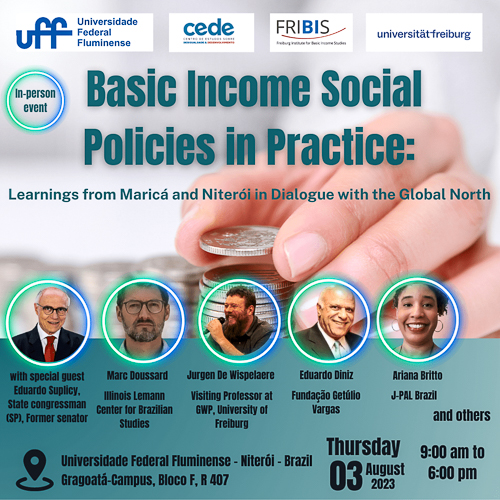Since the early 2000s, the emergence and continuous growth of cash transfer programs define the main stage in the discussion surrounding the future of social protection. While established first in Latin America, programs focussing on direct cash transfers have spread throughout various countries and contexts. Parallelly, a debate developed on the advantages and disadvantages of the conditionality and unconditionality of cash transfers as social policy mechanisms.
The municipality of Maricá established the Renda Básica de Cidadania in 2013 and since then, expanded it majorly. Today, it is the largest basic income program in Latin America. It is based on the circulation of a digital community currency, called mumbuca, which creates a broad network of local exchange within the municipality. Meanwhile, the Moeda Social Arariboia in Niterói was established in its current form in 2022. While the Niterói policy carries some similarities with the policy in Maricá, it also differs in various points.


